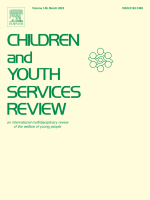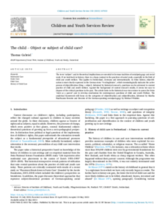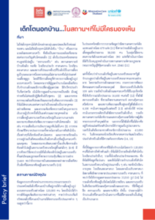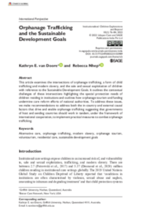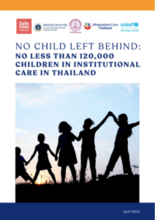Displaying 41 - 50 of 713
This US-based study examined youth’s perspective of the quality of care and experiences in residential group care. This study was approved by an Institutional Review Board. Data were collected as part of a larger statewide pilot of the Quality Standards Assessment (QSA).
This paper is a first approach to pursuing questions of subjectification and objectification in the context of children and youth growing up in care settings in Switzerland.
This webinar looked at ways to raise awareness among the general public on the right to independent living and the harm of institutionalisation for the entire society.
This article examines the intersections of orphanage trafficking, a form of child trafficking and modern slavery, and the sale and sexual exploitation of children with reference to the Sustainable Development Goals. It outlines the contextual challenges of these intersections highlighting the special protection needs of children residing in institutions and outlines how orphanage tourism and funding undermine care reform efforts of national authorities.
This new study reveals that over 120,000 children in Thailand are living in institutional settings, mostly due to poverty and limited access to education. 90% have at least one living parent. Although institutional care may be appropriate in emergencies, it is often overly misused and can affect children’s emotional, cognitive and mental development. More than 50% of private “orphanages” are unregistered and unregulated.
This webinar was hosted by the Evidence for Impact Working Group of the Transforming Children’s Care Collaborative on March 30, 2023, and examined the Early Institutionalization Intervention Impact Project in Brazil.

